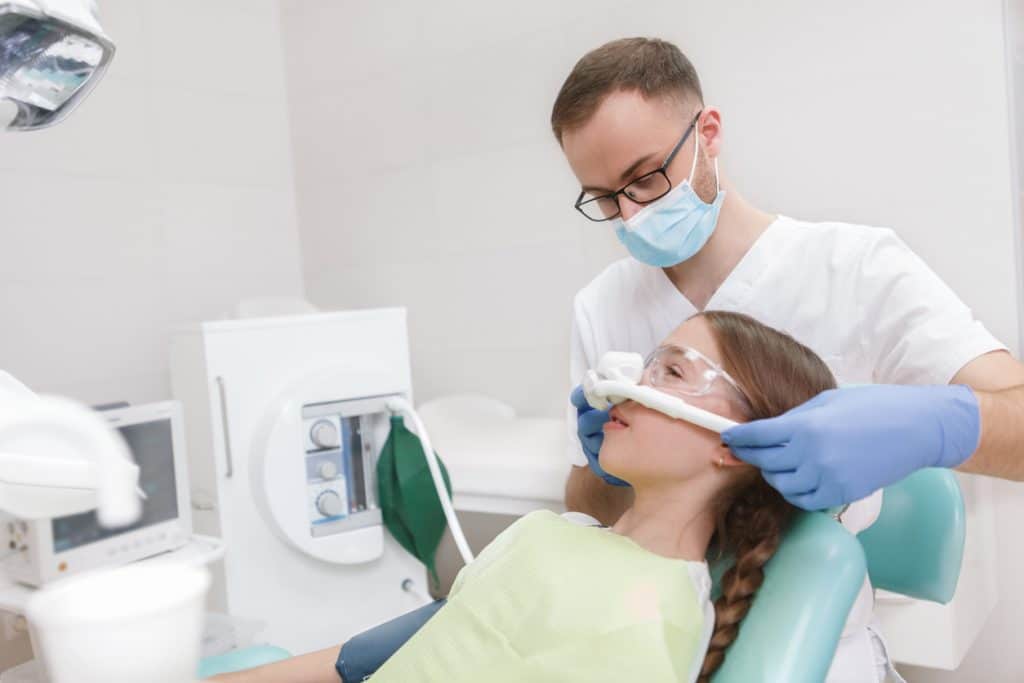Meopa is intended for medical use for its anxiolytic and analgesic surface effects and for conscious sedation for painful but short-lived procedures.
Therefore, like any other product subject to a medical prescription, it may be contraindicated in certain cases.
Contraindications to the use of Meopa must be considered before its administration. For this reason, a dentist or other health care professional will seek your medical history before prescribing it.
What are the contraindications to MEOPA?
These are so-called absolute contraindications, in other words, they must be respected.
Since Meopa gas has a high diffusivity in the so-called closed cavities, it cannot be administered in the following cases
- Neurological: intracranial hypertension, altered consciousness,
- Pulmonary: pneumothorax, emphysema bullae, intense oxygen therapy,
- Digestive: abdominal gas distension,
- In case of gas embolism,
- After a diving accident,
- In case of facial trauma (the mask cannot be applied),
- If the vital situation is deemed precarious,
- For a patient who has recently received an ophthalmic gas (SF6, C3F8, C2F6), as long as a gas bubble remains inside the eye,
- In case of known and unsubstituted vitamin B12 deficiency.
The use of Meopa is also contraindicated if the procedure lasts too long (more than one hour) or if the pain is too intense. These are relative contraindications, as is the phobia of the mask.
In some cases, Meopa alone or with an analgesic (paracetamol or ibuprofen) is not recommended.
In cases of fracture or dislocation reduction, for example, these procedures are far too painful. A general anesthetic or other solutions must be considered.
Side effects of MEOPA
Because Meopa can have side effects, only health care professionals with specific training will be able to administer it.
However, side effects from Meopa administration are relatively rare and reversible. They occur just after the drug is stopped.
We can then:
- Feel nausea,
- Have vomiting,
- Being in a state of great agitation, excitement or euphoria, sedation,
- Suffering from otalgia (ear pain).
Meopa does not affect respiratory or hemodynamic (blood flow) function and is used to treat patients with respiratory or cardiac failure.
Precautions for use before administration of MEOPA gas
Special precautions should be taken when administering Meopa.
The first precautions to be taken concern the premises. These must be ventilated and equipped with an oxygen source as well as an emergency cart.
With regard to storage, Meopa gas must remain in storage and be administered at a positive temperature (above 0°).
Finally, the last precautions are related to the patient. Indeed, if Meopa can be administered at any age (including in the neonatal period), its effect is less intense in children under 3 years old.
The success rate is therefore lower for the desired effects of Meopa. The guarantee of success of analgesia with Meopa is linked to the support offered to the child (distracting him, respecting his rhythm, etc.).
Rest assured, all questions regarding the administration of Meopa will be addressed at your dental appointment.
Meopa will be administered in accordance with established precautionary measures taking into account your medical history and contraindications to Meopa.




